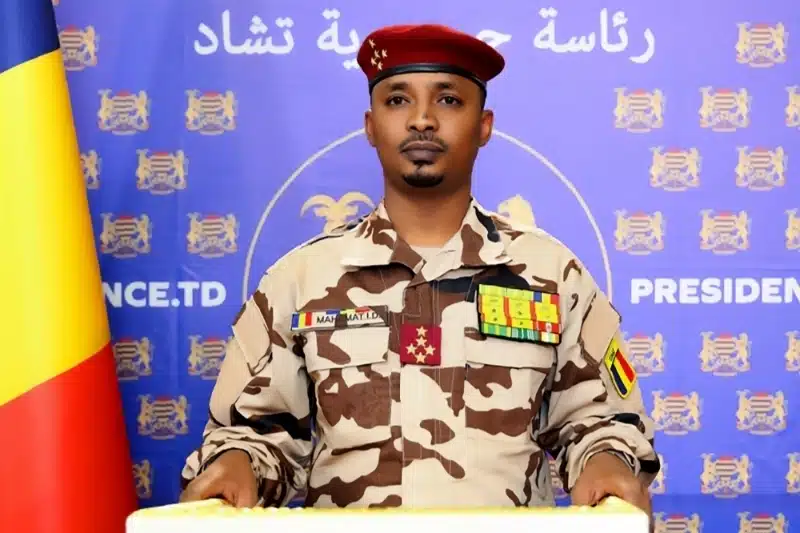Chad’s president shifts military focus to bolster national security

Chad’s President Mohamed Idriss Déby has announced a strategic realignment of the country’s military, placing a heightened emphasis on domestic security and territorial protection amid persistent security challenges.
The move comes in response to a recent surge in violence, including a deadly attack by Boko Haram militants that claimed the lives of around 40 Chadian soldiers.
In his address, President Déby highlighted the lack of international support during Chad’s struggles against terror attacks, a reality that has led the nation to rethink its regional commitments.
“The absence of genuine solidarity within the multinational force has rendered our participation strategically ineffective,” Déby stated, signaling a recalibration of Chad’s security priorities to ensure stronger border protection and the safety of its citizens.
The Chadian leader has been directly overseeing operations from the Lake Chad region, where intensified strikes against insurgent strongholds reportedly inflicted significant losses on the militants.
Déby affirmed that ground forces remain prepared to counter any future threats.
Chad has long faced multifaceted security challenges, particularly since joining the multinational anti-terror force in 2013.
President Déby’s decision to concentrate on internal defense highlights the country’s shifting priorities in the face of ongoing threats.
It is noteworthy that President Déby, 68, is one of Africa’s longest-serving leaders, having come to power in 1990 after a military revolt.
Born in 1952 in Fada, eastern Chad, to a Zaghawa herdsman, Déby climbed the ranks through the military, including undergoing training in France.
He returned to Chad in 1978, played a key role in rebellions, and later served as chief military commander before assuming the presidency.
About The Author
dailymailafric
I am an avid African news observer, and an active member of Daily Mail Africa.
I’m Passionate about staying informed on diverse topics across the continent,
I actively contribute to publishing on political, economic and cultural developments in Africa.



